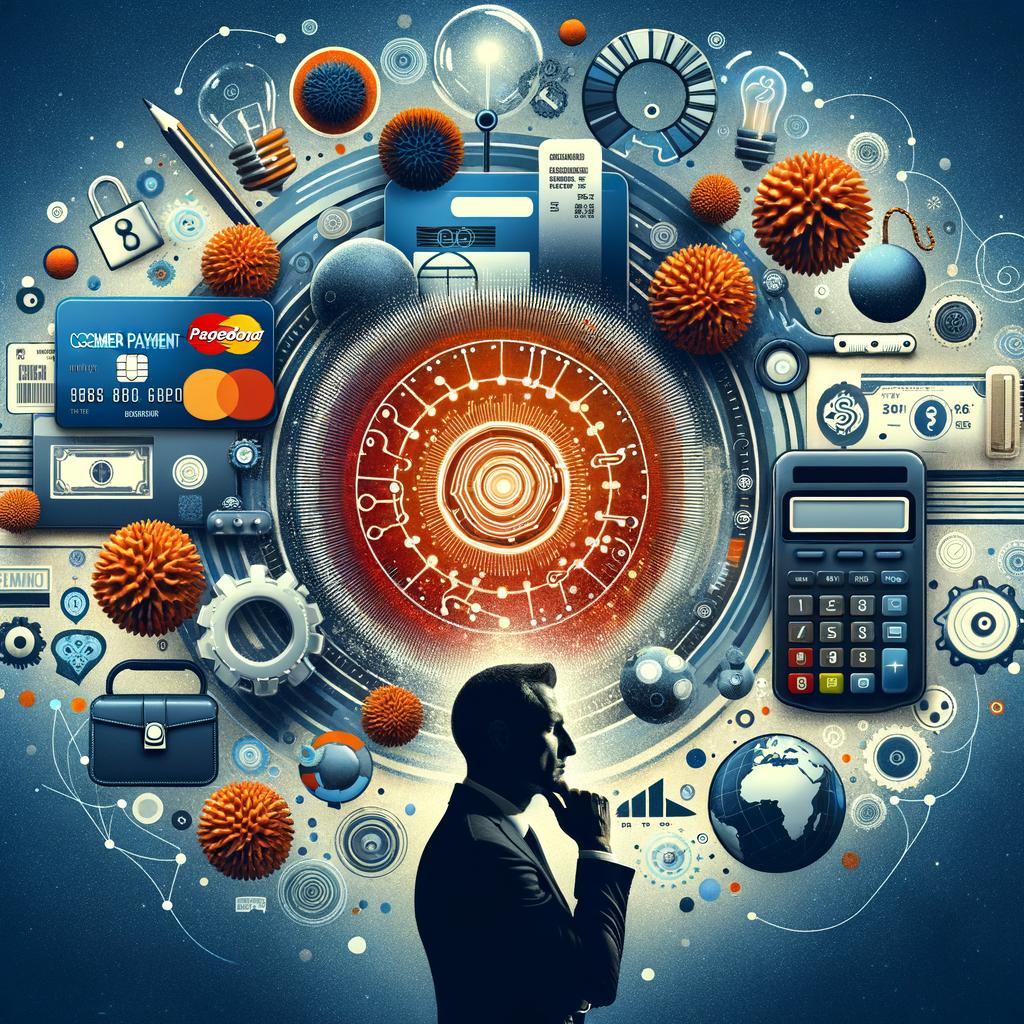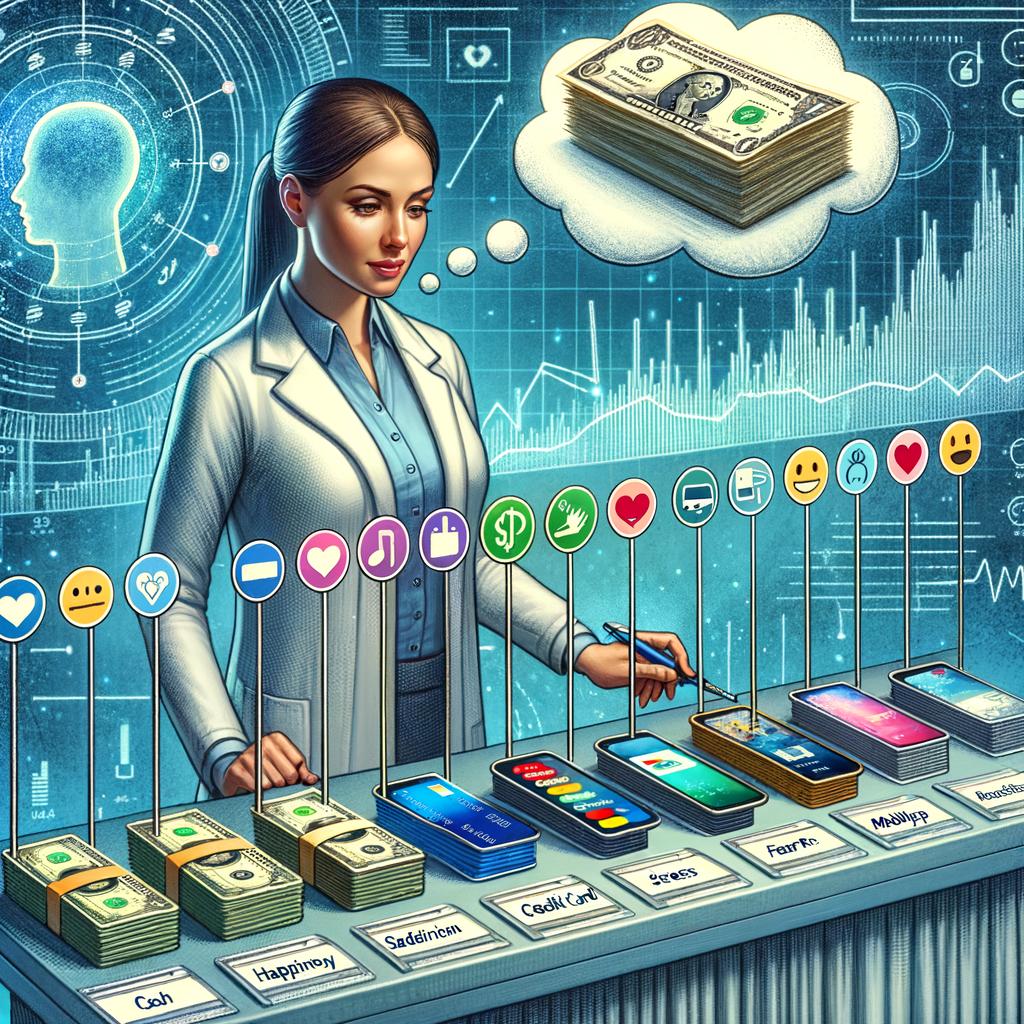The Psychology Behind Consumer Payment Choices
Have you ever stopped to think about why you choose to pay for things the way you do? From flashing your credit card at the register to meticulously counting out cash, our payment choices can say a lot about us. In this article, we’ll dive into the fascinating world of consumer payment psychology and explore the hidden motivations behind the way we choose to fork over our hard-earned dough. So grab your wallet, sit back, and get ready to uncover the secrets behind your spending habits.
Understanding the Influence of Emotions on Payment Choices
When it comes to making payment choices, emotions play a significant role in influencing consumer behavior. Understanding how our emotions impact the way we pay for goods and services can help businesses tailor their payment options to better meet the needs and preferences of their customers. Here are some key factors to consider when it comes to the psychology behind consumer payment choices:
1. Mood: Our mood can greatly affect the way we make payment decisions. When we are in a positive mood, we may be more likely to opt for convenient payment methods like credit cards or mobile payments. On the other hand, when we are feeling more cautious or anxious, we may prefer to use cash to have better control over our spending.
2. Social influences: The people around us can also influence our payment choices. For example, if we see our friends using a particular payment app or method, we may be more inclined to try it out ourselves. Social norms and peer pressure can play a significant role in shaping our payment behaviors.
Exploring the Role of Cognitive Biases in Consumer Decision Making
Payment choices are often influenced by a variety of cognitive biases that impact the way consumers make decisions. **Anchoring bias** is one of the most common biases that affects consumer payment choices. This bias occurs when individuals rely heavily on the first piece of information they receive when making a decision. For example, a consumer may be more likely to choose a higher-priced item if it is positioned next to an extremely expensive product, even if the price is still high compared to other options.
**Social proof** is another cognitive bias that plays a role in consumer payment choices. This bias involves individuals looking to others for guidance on how to act in a particular situation. When consumers see that others have chosen a particular payment method or product, they are more likely to follow suit. This is often seen in online shopping, where consumers may be more inclined to use a specific payment method if they see that it is popular among other buyers.
Navigating Social Influences on Preferred Payment Methods
When it comes to making payment choices, consumers are often influenced by various social factors that can impact their preferred methods of payment. From peer pressure to societal norms, individuals may find themselves swaying towards certain payment options based on what is considered popular or desirable in their social circles.
One key aspect that drives consumer payment choices is the desire for convenience and ease of use. People are more likely to opt for payment methods that are quick, simple, and hassle-free. Whether it’s using a mobile payment app or tapping a contactless card, consumers are drawn to options that allow them to make transactions effortlessly. Additionally, the perceived security of a payment method plays a significant role in decision-making, especially in light of increasing concerns around data breaches and identity theft.
Maximizing Satisfaction by Aligning Payment Choices with Personal Values
When it comes to making payment choices, consumers are often driven by their personal values and beliefs. Research has shown that aligning payment choices with these values can lead to a higher level of satisfaction with the purchase. This is because when consumers feel that their payment method reflects their values, it reinforces a positive connection between the product or service and their identity.
For example, if a consumer values environmental sustainability, they may be more satisfied with a purchase made using a green payment method such as a digital wallet that supports eco-friendly causes. By understanding the psychology behind consumer payment choices, businesses can tailor their payment options to better align with their customers’ values, ultimately leading to increased satisfaction and loyalty.
Wrapping Up
In conclusion, understanding the psychology behind consumer payment choices gives us a glimpse into the complex world of decision-making. From the influences of social norms to our own personal biases, our payment choices say a lot about who we are as individuals. So next time you reach for your wallet, think about the psychological factors at play and consider how you can make more mindful payment decisions. After all, it’s not just about how you spend your money, but why you choose to spend it the way you do. Happy shopping!






